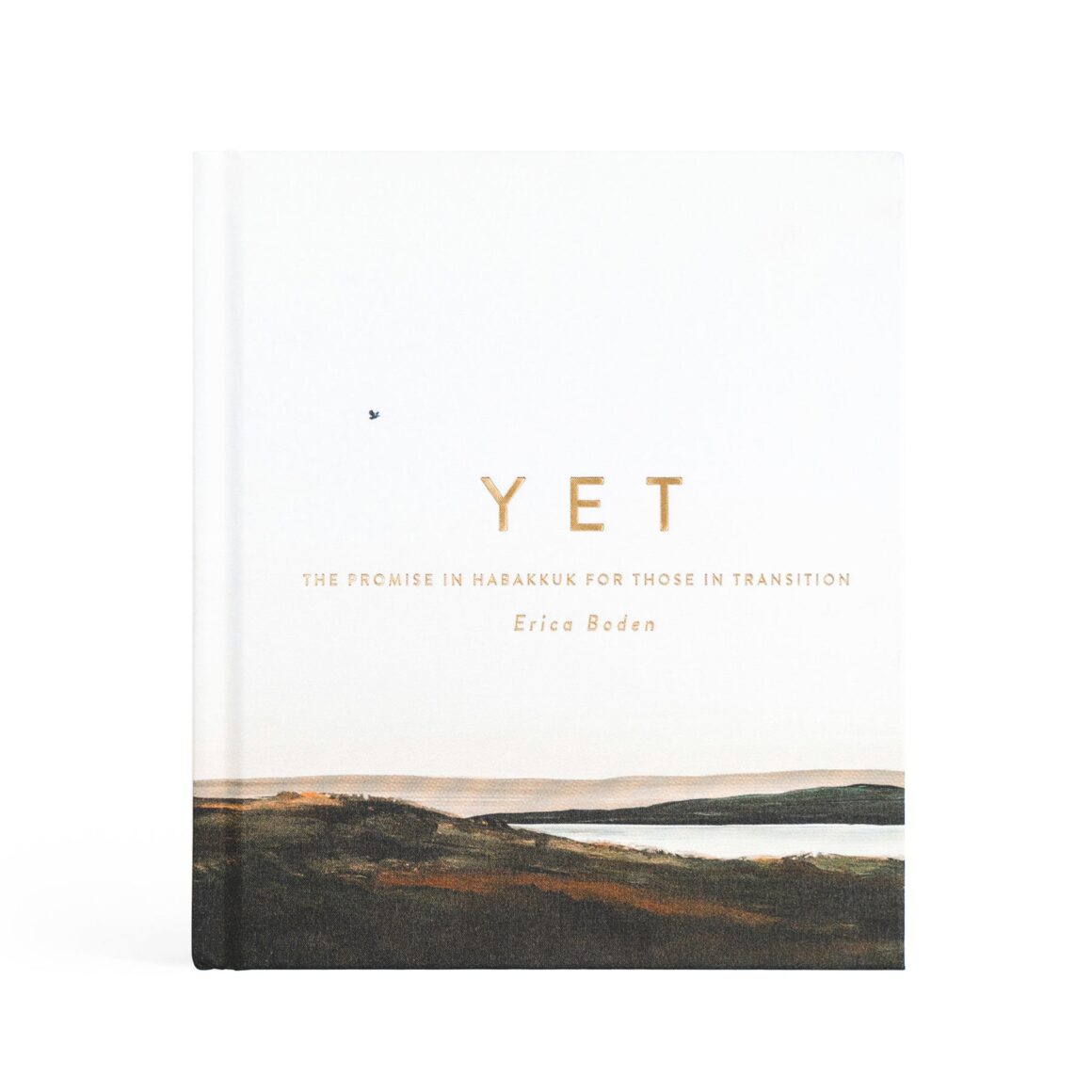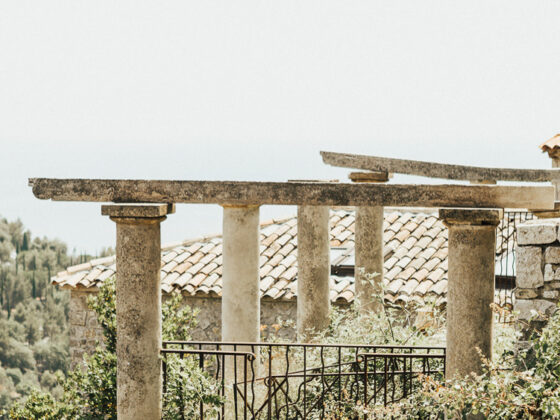Introduction
When I think of end caps on the chapters of my life, they are vivid.
I see the shiny, crinkly confetti falling at high school graduation. I feel the gray, wiry carpet I fell on when I got a call that my friend died. I taste my face’s salt as I hobbled across the finish line of a marathon. The awkward first night after my parents dropped me off at college alone, with a bowl of Honey Bunches of Oats, thinking, now what? The first day of a new job. The first day after a break-up.
These events are significant for what they represent: the entering of a transition season—a gray area of life, the muddled, maybe even the mess itself. The areas of life that may come with both joy and sadness, and maybe both in the same day. Heck, it could be multiple times a day. We spend a lifetime full of preparing, transitioning, and adjusting to a new normal—then getting ready to do it again.

YET: The Promise in Habakkuk for Those in Transition
Erica Boden
Take a 6-week journey through Habakkuk with Erica Boden in her devotional, YET.
During these seasons of life, I need to know and believe God is there. I need to see him in it with me, not looking back in a hindsight-is-20/20 kinda way. If he is the Prince of Peace, the Ultimate Healer and the Great I AM, then I need to find him in the transition daily. I need to believe he, in fact, is there—more vividly than the end caps in my life. The end caps haven’t closed a door without the Lord opening another.
In the midst of new zip codes, new last names, new diagnoses, God is with you. He sees you. He walks with you. He carries you. Let’s be reminded of that over the next three days.
Day 1: Pray
Read Habakkuk 1:2-5
Habakkuk was living and preaching during uncertain times, and he had questions for God, like why? and, later, how long? These questions show the urgency of Habakkuk’s questions, the intensity of his pain. Habakkuk’s questions may stem from a place I have visited often, perhaps a place you are right now: the island of feeling forgotten by God.
In verse 3, Habakkuk asks the Lord specifically why he sees inequity (injustice). He feels justice is gone, and he thinks God is not listening to his pleas for help.
- How do you feel God’s presence (anything goes: song, nature, friends, prayer, or another way the Father reveals himself)?
- Like Habakkuk’s questions for the Lord, what is a question you have for God right now?
- What does Habakkuk 1:5 reveal about the character of God?
Day 2: Listen
Read Habakkuk 2:1-5
Habakkuk 1:12-2:1 (we read verse one) shows Habakkuk’s second complaint and the Lord’s second answer. In my ESV Bible, the Lord’s second answer is headlined: “The Righteous Shall Live by His Faith.” What does it mean to you to “live by faith”?
These verses show God and Habakkuk in a back-and-forth conversation. After listening to and receiving God’s first answer (Habakkuk 1:5-11), Habakkuk responds to God with more questions. This is significant for many reasons, but two jump out to me:
- Habakkuk doesn’t walk away from God when he doesn’t get the answer he wants.
- God doesn’t walk away from Habakkuk when he is approached with more questions.
God doesn’t tire of us or “zone out.” He listens, remains, and is ready to walk through our questions with us, whether it is the same thing we’ve asked before or addressing a new ache.
- Reflect on your day yesterday. Was it full of pits or perks? Perhaps a mixture of both? Write down a moment where you saw or felt the Lord’s presence.
- If the vision seems slow, what are we supposed to do (2:3)?
- Share something you could do to honor Jesus and seek peace while you wait in this season.
Day 3: Rejoice
Read Habakkuk 3:17-19
Habakkuk walks us through the necessities of life—the food and water needed for survival. There are no elements of life to be found at this time. The trees aren’t blossoming, and there’s no fruit or olive produce or cattle to be found. It’s a dire situation. Habakkuk lists things that are hard. Times are sad. Events are devastating. But Habakkuk also reveals his greatest joy: God. After wrestling with God for the past couple chapters, Habakkuk is no longer discouraged by his circumstances and situation, but his faith and joy is found in the Lord, solely in God himself.
- List some of the necessities for your life. How do you feel when you’re lacking one (or several) of the necessities you listed above?
- Why can you take joy in God today, despite your circumstances?
- What does it look like for you to glorify God in your daily life?
Conclusion
Transitions can be long. Movement towards God and progress aren’t linear. If you are in the middle of the in-between, please continue being patient with yourself and pouring into yourself the best way possible: by letting Jesus pour into you. Continue your momentum in the Word, learning more about who God is, and I pray you discover the freedom that is yours to be had on earth. Some recommendations: Habakkuk, Psalms, Romans, Philippians, Hebrews, Isaiah, 1 Corinthians, Matthew
Adapted from Erica Boden’s devotional, Yet: The Promise in Habakkuk for Those in Transition, published by Hosanna Revival.
Photo credit: Emilee Carpenter
Erica spends her days as a consultant and her evenings as a doctoral student, yet her favorite roles are being a daughter, sister, and friend. You can find her yelling, “Roll Tide!” at a television, enjoying a long run, or writing—probably wrapped in a fuzzy blanket. An alumna of the Fulbright Program, she loves traveling and seeing the consistency of God and his love for people throughout the world. YET: The Promise in Habakkuk for Those in Transition is her first published devotional.






